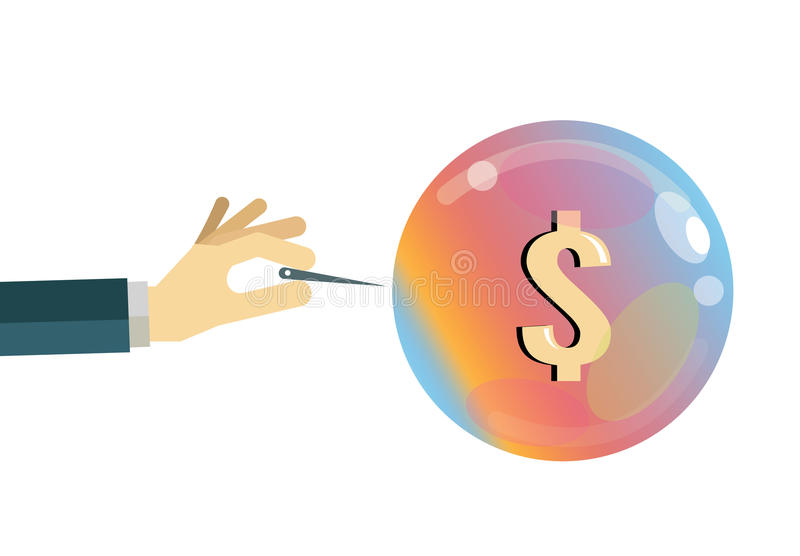
Although recessions can be difficult times, certain companies and professionals thrive in downturns. Not all businesses suffer equally during recessions, and some benefit from consumers' reduction in spending on competing products. Businesses that supply goods in high demand during recessions like luxury items often see a benefit. They also have the opportunity to profit from the increased demand of cheaper alternatives to high-end items.
Discount retailers
When the economy is going through a recession, discount retailers tend to do very well. This is because the demand for basic necessities remains strong, such as food, clothing, and healthcare. These items can be a great investment for discount stores because they are less expensive during slumps. A recession can last anywhere from eighteen to eighteen weeks. According to government agencies, the economy is considered to be in recession when it experiences two consecutive quarters of negative GDP growth.
Consumers' incomes are reduced when the economy is in recession. This means that they will be less inclined to spend on luxury goods. They may choose to substitute lower-quality goods or buy fewer products. Some items, however, are not possible to cut from a budget like video games. These items are not affordable so they will seek out cheaper alternatives. In a recession, discount retailers and healthcare companies are able to offer affordable goods at low prices.

PepsiCo
When a recession hits, PepsiCo does better than its competitors. PepsiCo avoids wholesale price revisions, does not lose customers to competitors, invests more into marketing materials, pointofsale materials, and digital media. It has also shifted its marketing efforts to target a younger customer demographic that is more in tune with today's lifestyle.
PepsiCo has a strong record of being able to weather recessions. Despite the modest drop in earnings per share during the Great Recession 2007-09, revenues increased 20% in 2009. Even after the recession, its profits grew and it projects strong growth for 2020 and 2021. Its financial strength and credit rating have helped keep it out of recessions.
Johnson & Johnson
Stocks can suffer in a recession. However, Johnson & Johnson's business model allows for growth to continue even in difficult times. The company's products are essential to people's lives and therefore demand remains high. The company also has a strong credit rating and an impressive track record. That combination of factors makes it a good choice for investors. Below are some reasons Johnson & Johnson has done well in a recession.
First, the company may have performed well in a recession due to its diverse business model. The company's portfolio does not only include pharmaceuticals and medical device, but also over-the–counter medicines and beauty items. As a result, a diversified business model allows it to compensate for its weaker segments.

Smucker's
With more than 120 years of history, Smucker's has proven to be a stable long-term investment. It has always adapted to the changing tastes and preferences of consumers over the years. It is now embarking upon a second pivot and refocusing on the two highest-growth sectors, premium pet food and high-growth coffee. Although this ongoing pivot will take many years, it is expected to lead to consistent dividend growth in the future.
Analysts rate Smucker shares at a hold. But Goldman Sachs recently downgraded Smucker shares from a sell to ahold. The company's revenue is up, but sales growth is limited by inflation and Walmart's buying power. Its coffee business and Uncrustables brand are its key growth areas.
FAQ
What Is a Stock Exchange?
A stock exchange is where companies go to sell shares of their company. Investors can buy shares of the company through this stock exchange. The market determines the price of a share. The market usually determines the price of the share based on what people will pay for it.
Companies can also raise capital from investors through the stock exchange. Companies can get money from investors to grow. Investors buy shares in companies. Companies use their money for expansion and funding of their projects.
Many types of shares can be listed on a stock exchange. Some are called ordinary shares. These shares are the most widely traded. These are the most common type of shares. They can be purchased and sold on an open market. Shares are traded at prices determined by supply and demand.
There are also preferred shares and debt securities. Preferred shares are given priority over other shares when dividends are paid. The bonds issued by the company are called debt securities and must be repaid.
How does Inflation affect the Stock Market?
The stock market is affected by inflation because investors need to pay for goods and services with dollars that are worth less each year. As prices rise, stocks fall. You should buy shares whenever they are cheap.
Why is a stock security?
Security is an investment instrument, whose value is dependent upon another company. It may be issued either by a corporation (e.g. stocks), government (e.g. bond), or any other entity (e.g. preferred stock). The issuer promises to pay dividends to shareholders, repay debt obligations to creditors, or return capital to investors if the underlying asset declines in value.
What are some advantages of owning stocks?
Stocks are more volatile that bonds. If a company goes under, its shares' value will drop dramatically.
If a company grows, the share price will go up.
In order to raise capital, companies usually issue new shares. This allows investors the opportunity to purchase more shares.
Companies can borrow money through debt finance. This gives them access to cheap credit, which enables them to grow faster.
People will purchase a product that is good if it's a quality product. The stock price rises as the demand for it increases.
The stock price will continue to rise as long that the company continues to make products that people like.
What is a bond?
A bond agreement is an agreement between two or more parties in which money is exchanged for goods and/or services. Also known as a contract, it is also called a bond agreement.
A bond is usually written on a piece of paper and signed by both sides. The bond document will include details such as the date, amount due and interest rate.
The bond can be used when there are risks, such if a company fails or someone violates a promise.
Sometimes bonds can be used with other types loans like mortgages. This means that the borrower must pay back the loan plus any interest payments.
Bonds can also raise money to finance large projects like the building of bridges and roads or hospitals.
A bond becomes due when it matures. This means that the bond owner gets the principal amount plus any interest.
Lenders can lose their money if they fail to pay back a bond.
Why are marketable Securities Important?
A company that invests in investments is primarily designed to make investors money. This is done by investing in different types of financial instruments, such as bonds and stocks. These securities are attractive because they have certain attributes that make them appealing to investors. They can be considered safe due to their full faith and credit.
What security is considered "marketable" is the most important characteristic. This refers to the ease with which the security is traded on the stock market. It is not possible to buy or sell securities that are not marketable. You must obtain them through a broker who charges you a commission.
Marketable securities include government and corporate bonds, preferred stocks, common stocks, convertible debentures, unit trusts, real estate investment trusts, money market funds, and exchange-traded funds.
These securities are preferred by investment companies as they offer higher returns than more risky securities such as equities (shares).
What is the difference between the securities market and the stock market?
The whole set of companies that trade shares on an exchange is called the securities market. This includes stocks as well options, futures and other financial instruments. Stock markets can be divided into two groups: primary or secondary. Stock markets are divided into two categories: primary and secondary. Secondary stock market are smaller exchanges that allow private investors to trade. These include OTC Bulletin Board Over-the-Counter, Pink Sheets, Nasdaq SmalCap Market.
Stock markets are important because they provide a place where people can buy and sell shares of businesses. The value of shares depends on their price. A company issues new shares to the public whenever it goes public. These newly issued shares give investors dividends. Dividends can be described as payments made by corporations to shareholders.
Stock markets are not only a place to buy and sell, but also serve as a tool of corporate governance. The boards of directors overseeing management are elected by shareholders. Boards ensure that managers use ethical business practices. If a board fails in this function, the government might step in to replace the board.
Statistics
- Our focus on Main Street investors reflects the fact that American households own $38 trillion worth of equities, more than 59 percent of the U.S. equity market either directly or indirectly through mutual funds, retirement accounts, and other investments. (sec.gov)
- For instance, an individual or entity that owns 100,000 shares of a company with one million outstanding shares would have a 10% ownership stake. (investopedia.com)
- The S&P 500 has grown about 10.5% per year since its establishment in the 1920s. (investopedia.com)
- "If all of your money's in one stock, you could potentially lose 50% of it overnight," Moore says. (nerdwallet.com)
External Links
How To
How to Trade on the Stock Market
Stock trading can be described as the buying and selling of stocks, bonds or commodities, currency, derivatives, or other assets. The word "trading" comes from the French term traiteur (someone who buys and sells). Traders buy and sell securities in order to make money through the difference between what they pay and what they receive. It is one of oldest forms of financial investing.
There are many ways to invest in the stock market. There are three main types of investing: active, passive, and hybrid. Passive investors are passive investors and watch their investments grow. Actively traded investor look for profitable companies and try to profit from them. Hybrid investors use a combination of these two approaches.
Passive investing involves index funds that track broad indicators such as the Dow Jones Industrial Average and S&P 500. This is a popular way to diversify your portfolio without taking on any risk. Just sit back and allow your investments to work for you.
Active investing involves selecting companies and studying their performance. An active investor will examine things like earnings growth and return on equity. They then decide whether or not to take the chance and purchase shares in the company. They will purchase shares if they believe the company is undervalued and wait for the price to rise. They will wait for the price of the stock to fall if they believe the company has too much value.
Hybrid investment combines elements of active and passive investing. One example is that you may want to select a fund which tracks many stocks, but you also want the option to choose from several companies. This would mean that you would split your portfolio between a passively managed and active fund.